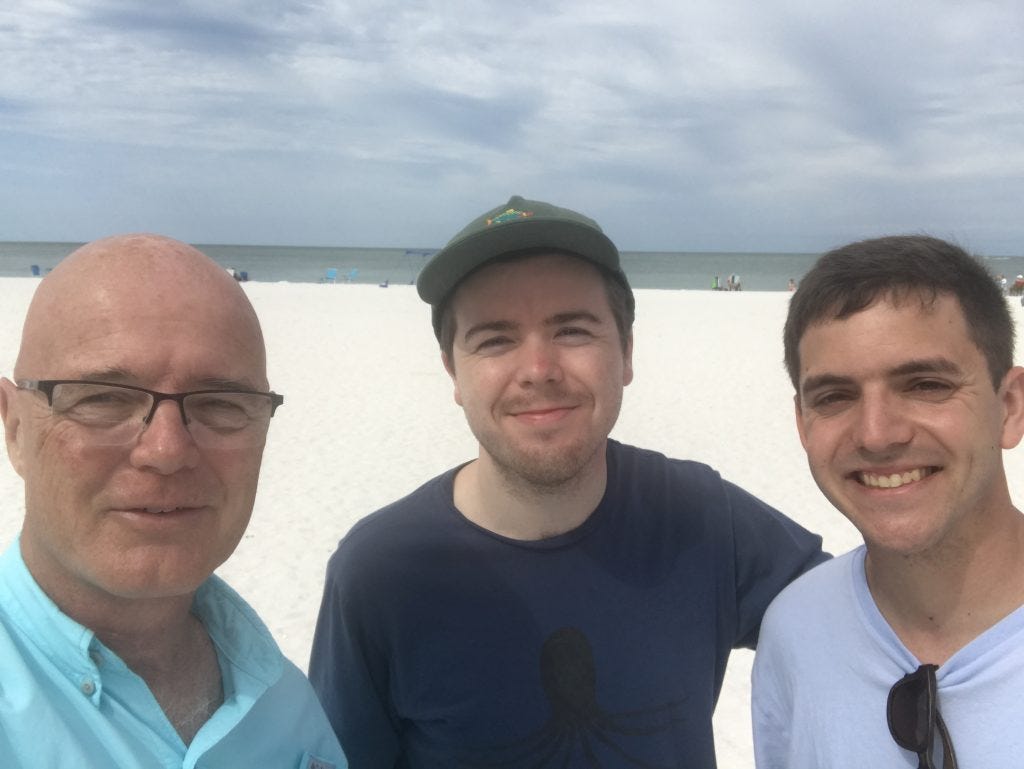Paradigm Change: Reformation (pt. 6)
“Now, someone might tell you that along with the devastating losses that accompany doubt, you will also lose some of your illusions, and that is a good thing. But disillusionment is only a good thing in retrospect. When you’re going through it, it feels like hell.”
McLaren, Brian D.. Faith After Doubt (p. 12). St. Martin's Publishing Group. Kindle Edition.
I’ve made mistakes in my immaturity and ignorance. I didn’t take advice I probably should have. But when I look back on it all, even though I wonder what could have been, I’m glad things happened the way they did. Jacob wrestled with God and walked away with a limp. Sometimes I feel like I’ve lost more than that, but much like Paul in Philippians 3, nothing is compared to the joy, the peace, the freedom that I have found in Christ.
My friend, mentor, and brother in Christ Dr. Dallas Burdette summed up my new paradigm well when he concluded in his own pilgrimage of faith, “It is not ‘What do you believe?’—the eager and sole inquiry of modern religious parties—but rather, ‘In whom do you believe?’”
Reformation is the stage in which new theories, new answers, and new methods are put forth. It’s a time of reconstruction. The purpose and goal of asking questions, challenging the status quo, and deconstructing is to rebuild and reconstruct. The end goal isn’t to throw away everything, but to transcend beyond the earlier stages of life while including what was good.
I believe there are many wonderful things the Churches of Christ have given me over the years: a love for God and His word, willingness to accept truth regardless of the consequences, an appreciation for church autonomy, beautiful singing, and many other wonderful things. What I’ve learned is that we can maintain all of those things while moving beyond the things that weren’t so helpful like divisions over so-called patterns and methods.
One thing I do want to clarify is that I am still a member of the Churches of Christ, and I am proud of it. It is, and always will be, my lowercase ‘h’ heritage. I love its history, the founders of the Stone-Campbell movement, and its founding principles. I believe it is redeemable. I believe it can be saved. I believe that its founding documents, which I’ve discussed at great length in other posts, serve as a wonderful framework for a new unity movement.
As Neo in A New Kind of Christian explained, When someone is post-pubescent, they are not anti-puberty; they have simply moved beyond that stage of their life. The hormones changed them, matured them, morphed them into who they are. They will never be a child again. They transcended beyond puberty while including the best parts.
In the same way, I am not anti-Churches of Christ, but I believe we must move beyond 19th century and even 20th century Christianity and embrace 21st century Christianity. That is not to say that we cease being the New Testament church; it just means that we take the best parts of our lowercase ‘h’ heritage, include them in our new paradigm, and transcend beyond the rest.
This does not mean that we doubt the salvation, integrity, or faithfulness of generations gone by. By going through this process we actually honor their memory by building upon the work they have done. I don’t want to raise my son to be like me; I want to set him on a trajectory so he can be more like Jesus than I am or that I could be.
I want him to look back and say, “Dad, I appreciate where you brought me. I appreciate your contributions to my journey, your guidance, your love, but now it is time to build upon what you have done, to transcend beyond what you could do and allow the Lord to lead me to my potential, a potential you made possible through your efforts.”
This new paradigm of mine is one of love. It’s one of faithfulness. It’s one of mercy and justice.
While I love our patterns, I do not love the exclusive attitude we have had concerning them. While I love our traditions, I respect others’ traditions. While I love our teaching, I recognize that I am fallible and that my background plays a big part in how I read the Bible.
I am trying to love God with all my heart, soul, mind, and strength, but I understand that my neighbor’s heart, mind, soul, and strength is different from my own, so I must allow him or her to approach God in his or her own unique way while ultimately knowing that regardless of which direction we travel, whether it be from the North, South, East, or West that the gates to the kingdom of heaven are located on every wall and that they never close because there is no night there.
I believe that Jesus really is the way, the truth, and the life, so when I equate my opinions and heritage with the way to God, truth, or necessary for life, then I am elevating my opinions, which are fallible and subject to change, to the level of Jesus Himself, and I can no longer do that. I’m simply not perfect or good enough, and I do not want to say that my way is the only way when I am just a man.
In my last article in this series, I want to tell you a little bit about where I am now and where I am headed. Even though I am young, I know my life will change again before its all over. While I have been a victim of the “End of History Illusion” before, I know now that as long as I am less than perfect, then there is always new places into which Christ can lead me, and where He leads, I will follow.


